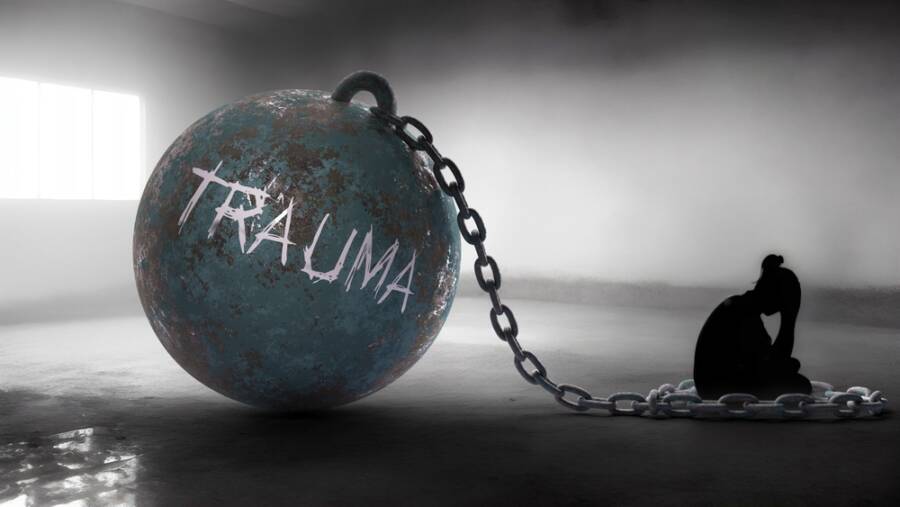Feeling Lost in Grief? Here’s What Might Help!
I thought I knew what grief was. Well, I was completely wrong. It wasn’t like the movies, there were no perfect words spoken before the last goodbye and nobody was there for me when I needed most.
Do you feel exhausted and overwhelmed by everything going on? Trust me, it’s all part of the healing process.
Losing someone is more painful than words can even express. I remember waking up every morning and wondering what I was going to do with my life. Everything seemed useless without him. I felt lost, I felt miserable.
One thing that no one tells you about grief is that it’s not just about sadness. It’s confusion and anger. I kept wondering why it happened to me, why it happened to us… But of course, I didn’t receive any answers to my insistent questions. After a long period of trying to rediscover who I was, I learned how to embrace the new version of myself. The one that was missing him every moment of her existence, but was forced to accept the loss.
It’s important to know that you never really heal, and it’s impossible to forget how loss feels. You just learn to cope with all those feelings and continue living your life.

8 Gentle Ways to Help You Cope with Grief
1. Celebrate the life of your loved one
Grieving is one of the most painful experiences we have to deal with. So, right after the unpleasant event, you might not be able to see the good parts but trust me when I say that celebrating the life of your loved one is an extremely important step in your grieving process.
Talk about your loved one every time you have the chance and recall the best memories you’ve made together. Remembering their good moments is an essential part of your healing. Try to step away from all those negative thoughts and celebrate the life you had together. Those moments will never come back, but you can recall them and keep them alive for as long as you want.
Allow yourself to remember everything you did with that person and celebrate who they managed to bring to the world. Talk about their talents and honor them.
This is a crucial step not just for your grieving, but also for keeping the dead person’s memory alive. As long as you do not let those memories fade away, it will feel like they are still there, by your side.
2. Acknowledge your pain
Accept the pain and acknowledge that the healing might take you longer than expected. Sometimes, people might also feel like they never fully recover. But, keep in mind, that when it comes to grief, avoidance shouldn’t be an option. Let yourself suffer, let your body and soul feel the pain, and come back stronger than ever.
Your loved one wouldn’t want you to suffer and stop living the life of your dreams. So, do it not just for yourself, but also for them. Keep moving forward and never stop fighting to achieve your dreams. The sky is the limit.
So, cry your eyes out each time you feel the need, talk about your feelings, but don’t forget that you are still alive and you shouldn’t spend your remaining time suffering.

3. Improve your diet
Eating healthy when you go through a hard period in your life is more important than you can even imagine. Self-care also means eating well. So, during a period of grief, make sure you eat fruits and vegetables. You need fibers and vitamins to help you go through the grieving process. Sometimes, because of depression and anxiety, it might be difficult to maintain a healthy diet but trust me when I say that food choices can make all the difference in how your body feels and recovers.
Oh, and don’t get me wrong! You don’t need to make any drastic changes, just make sure to maintain a healthy lifestyle while you allow yourself to go through every phase of your grief.
4. Get moving
Stop sitting on that couch. Instead, use physical exercises to cope with grief. Trust me, it’s one of the most effective strategies for healing. Exercise as much as you can, get out with your friends, lose weight, become the best version of yourself, and show your loved one that you’ve got this.
Exercising helps depression in many ways. So, it doesn’t really matter what kind of sports you opt for, there is no wrong way to do it. Incorporate biking, jogging, or even simple walking in your daily routine and you will rapidly see improvements in the way you feel.
Exercising will not cure grief, but will make a huge difference, helping you deal with your emotions.
5. Be patient
Be patient. It’s completely normal to feel lost and to experience a range of emotions. So, accept every phase of your grief and trust yourself. You are going to get over it. Being gentle with your emotions is another important thing you need to do.
So, try and listen to what your mind and body are asking for and honor your needs. Try new things and hobbies, or even new looks.
Grieving takes time, so learning how to live with it, while still taking care of yourself is extremely important. It’s a natural process. Offer yourself love and compassion and don’t be afraid to talk about your emotions. You don’t have to go through it all alone. Find a friend you can open up to and share your feelings. It might be more useful than you can imagine.
6. Reach out to others dealing with loss
Probably someone who is experiencing the same thing will understand you the best. So, reach out to your other friends or family members who are going through a rough time and are currently dealing with loss. Sharing your healing experiences will make you all feel better and understood. Every emotion is valid, and every failure is part of the journey. So, don’t be too hard on yourself.
You might also be surprised to see that people act differently to the same loss. You will basically learn from each other what works best and which are the methods and strategies that make you feel better.
7. Seek out support
Don’t hesitate to seek out support. Sometimes it might be crucial during times of grief. It can come from friends, family, or even specialists. Remember that asking for help doesn’t mean you’re weak, it means that you care about yourself and prioritize your well-being. Your loved person who’s no longer by your side would appreciate that you put yourself first.
There are countless ways to access support, so find one that suits your style.

8. Accept your new reality
Last but not least, you need to accept the loss and move forward. It’s difficult, I know, but once you accept that your loved one will never come back, you can open your eyes to the important aspects of your life. You need to focus on your future and continue to grow. There are a lot of things you can accomplish and you should benefit from every moment spent on this Earth.
If you move on, it doesn’t mean that you will forget about your loss. It means that you will learn how to live with it.
Before leaving, let us know in the comment section found below which one of these methods worked best in your case. Is there anything you’d recommend to our readers? Feel free to share your experiences!
Also, here is a book that might help you in your recovery journey. It’s called ”Healing After Loss: Daily Meditations For Working Through Grief” and can be easily found on Amazon!
If you liked this article, here’s what to read next: Burnout: Causes and Symptoms Explained by Psychologists










Leave a Reply